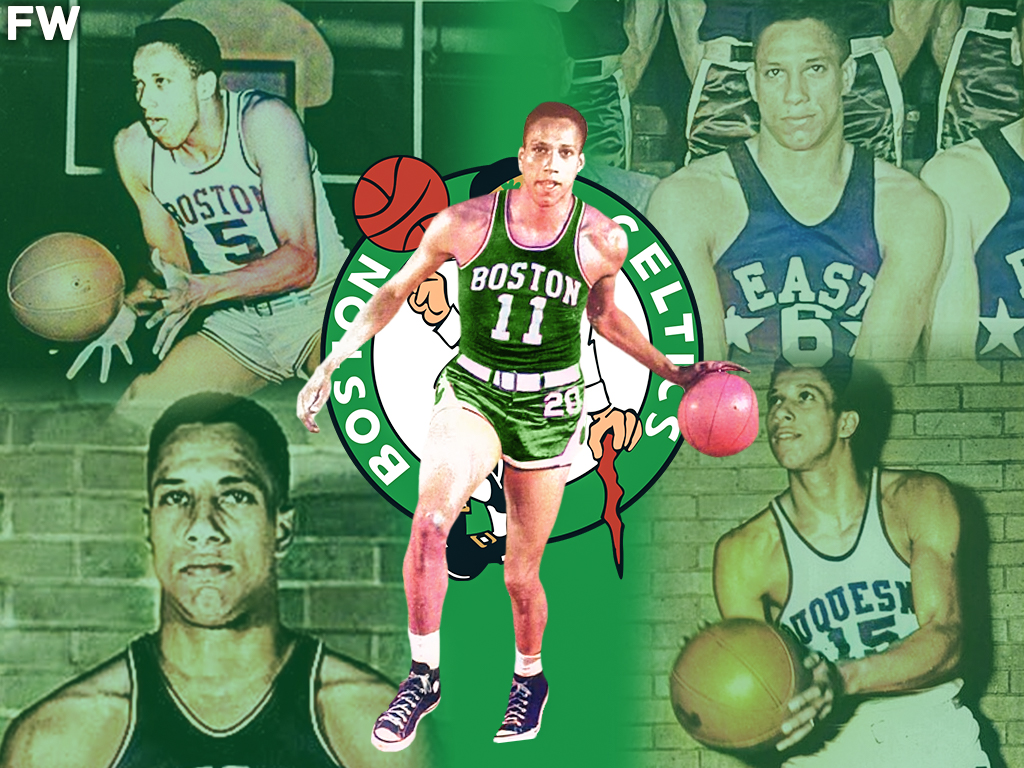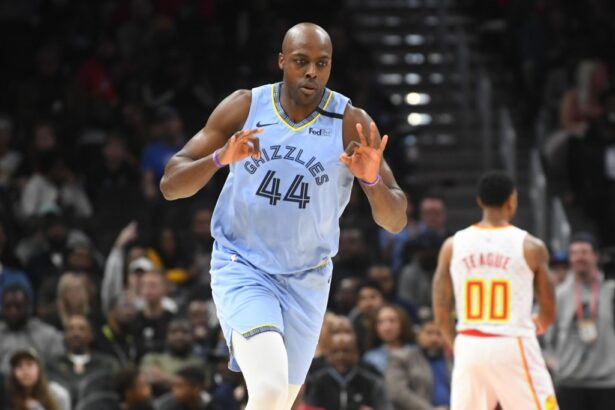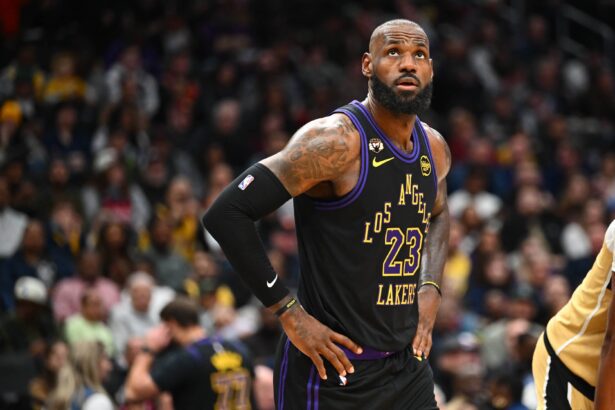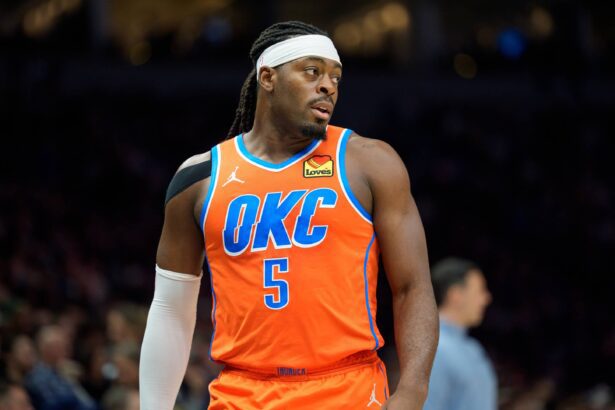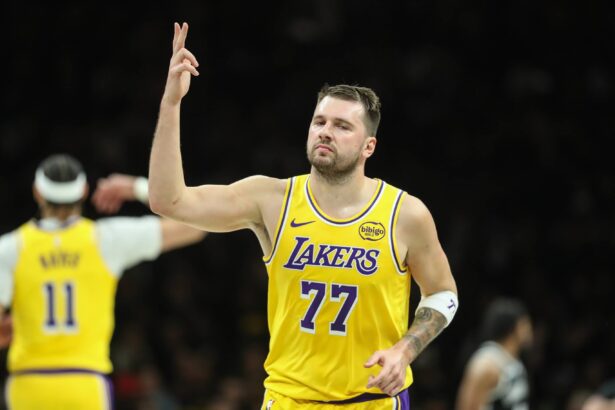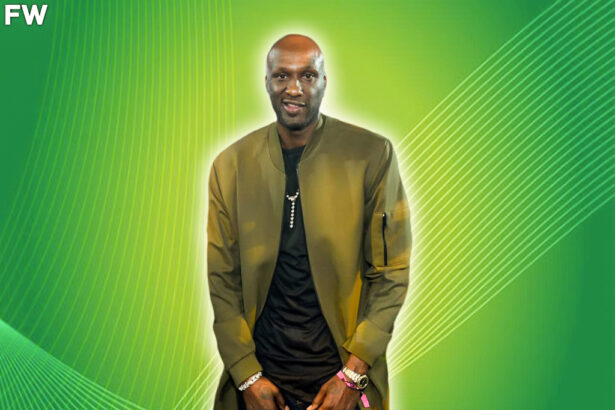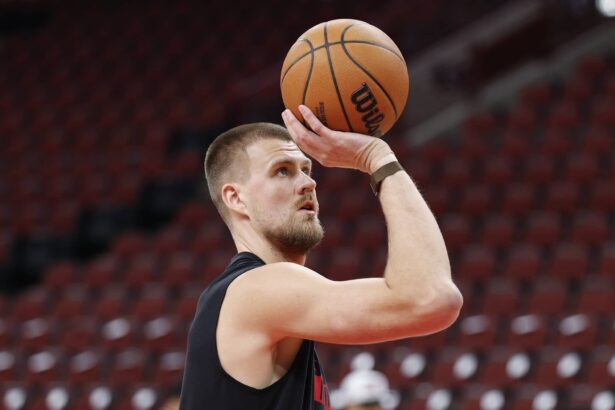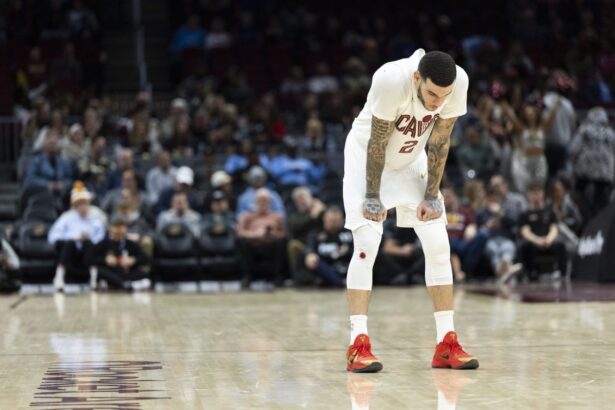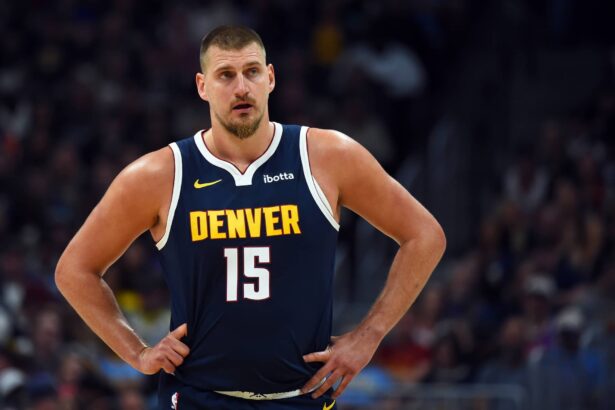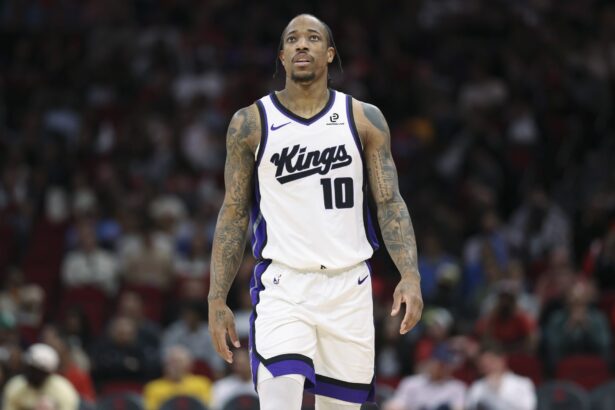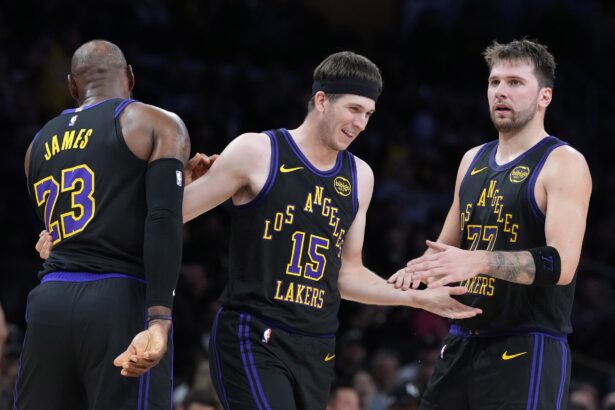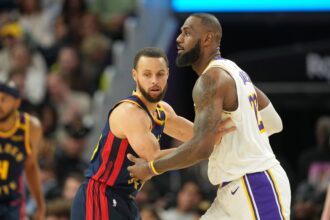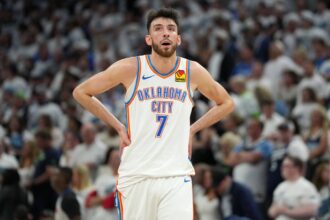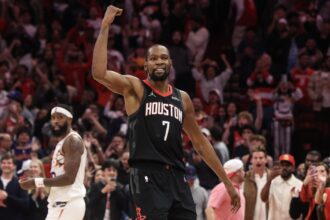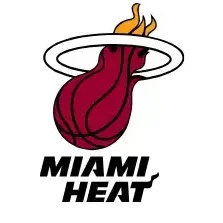The NBA was founded on November 1, 1946, and it was known as the Basketball Association of America or the BAA.
Like the other major sports leagues in America at that time, the BAA unfortunately only allowed white men to play in the league.
Only a year later, in 1947, the BAA made history by allowing a Japanese player by the name of Wataru Misaka to play for the New York Knicks.
His career would be cut short after only three games from racial tension from fans and other owners around the league.
On August 3, 1949, the BAA merged with another basketball league known as the National Basketball League, or NBL, to form what we know today as the National Basketball Association or NBA.
It would take another year for the newly founded NBA to allow nonwhite players to join their league, and when they did, it changed the game of basketball forever.
Chuck Cooper, Nat Clifton, Earl Lloyd
The 1950 NBA Draft made history when the Boston Celtics selected Chuck Cooper with the first pick of the second round. Cooper went on to become the first African American to play in an exhibition NBA game as well.
Earl Lloyd then made history by becoming the first African American to play in a regular season NBA game.
Nathaniel “Sweetwater” Clifton was the last to make history when he became the first African American to own a contract in the NBA when his contract was purchased from the Harlem Globetrotters.
Cooper, Lloyd, and Clifton were trailblazers during their time, allowing the likes of players from Bill Russell, to Michael Jordan, to LeBron James, to play the game of basketball at the highest level.
For this, basketball fans should tip their hats to these three players, known as the “holy trinity” of basketball.
The Importance Of Chuck Cooper’s Draft Selection
Chuck Cooper’s name doesn’t get brought up the same way as baseball’s Jackie Robinson, but it should because without Cooper’s draft selection in the 1950 NBA Draft, the signing of Clifton, and the selection of Lloyd, may have never followed.
There’s more to Chuck Cooper’s story than being the first African American selected in an NBA Draft, and if that’s the only bit of information you know of Cooper, then you’re missing out.
But don’t worry, keep on reading to learn how incredible Chuck Cooper really was as a human being.
The Early Years Of A True Pioneer
Chuck Cooper made history by becoming the first African American drafted by an NBA team, but did you know Cooper almost quit playing basketball between his high school sophomore and junior years?
Cooper attended Westinghouse High School in Pittsburgh, Pennsylvania and he felt as if he was only out on the basketball court to do “dirty work” and it wasn’t worth it for him.
Luckily for the history of the NBA and himself, Cooper’s coach, Ralph Zahniser, convinced him to stay on the team and continue to improve himself as an all-around basketball player.
That’s exactly what Cooper did. He worked his tail off and became a great player on offense, defense, and he could rebound and pass the ball with the best of them.
Cooper’s play helped his team win back-to-back (his Jr. and Sr. years) Pittsburgh’s City Championships. This was a great way for Cooper to cap off a stellar high school basketball career.
Cooper’s hard work and dedication to the game led him to West Virginia State College. There, Cooper would average 18 points per game before being drafted into the Navy.
While Cooper was serving in the Navy, he continued to play basketball, and this had him being recruited by the top integrated colleges in the country. This includes Naismith Hall of Fame basketball coach from Long Island University, Clair Bee.
Once Cooper was honorably discharged from the Navy, he had a decision to make of which school to attend. It ultimately came down to Long Island University and Duquesne University.
Cooper ended up selecting Duquesne University because of the quality of their academics and the opportunity to play for his hometown team and in front of his family. Duquesne University is where Cooper’s basketball game would take off to new heights.
Chuck Cooper Makes History In College Basketball
As a freshman at Duquesne University, Cooper would play great basketball, which helped lead his team to 19 straight wins and a 21-2 record.
Cooper’s team, the Dukes, reached the quarterfinals of the NIT, thanks to Cooper’s play, but this achievement wouldn’t be the biggest of Duquesne University that year.
During the season, in a game against the University of Tennessee in McKeesport, Pennsylvania, the coach of Tennessee, a man by the name of John Mauer, decided not to send his players out on the court.
He stated that he didn’t want his players to be on the court at the same time as Cooper, since Cooper was African American.
First, Cooper showed true class by telling his team he’d sit out, so the Dukes wouldn’t lose in a forfeit.
Cooper’s incredible act of class would be met with the same amount of class when his team said they wouldn’t play if Cooper wasn’t allowed to participate.
The head of the school’s council then told the sold-out crowd that the game was canceled, and they were sending Tennessee home.
Cooper faced discrimination throughout his college career, but as he did against Tennessee, Cooper always handled himself with class, never letting it tear down the person he was.
Throughout his high school and college career, the one knock against Cooper’s game was that he was sometimes a reluctant shooter.
As a sophomore and junior, Cooper proved his doubters wrong by leading Duquesne in scoring in each of his sophomore and junior seasons.
Cooper also set Duquesne’s single-season scoring record as a junior and as a senior. He became only the second player in school history to reach the 1000 point mark for a career.
Cooper was well respected by his teammates and his coaching staff and this showed to be true when he served as team captain during his senior year.
He was selected as a Consensus Second Team All-American. This made Cooper the second African American to be named as a Consensus All-American. Don Barksdale was the first, and Barksdale was also the first African American Olympic basketball player.
Cooper was also named First Team All-American from Look Magazine, and his impressive college career at Duquesne ended with a 78-19 record, with two NIT appearances.
Cooper was named team captain of the college All-American East-West Game alongside future NBA teammate, Bob Cousy.
Chuck Cooper Joins The Harlem Globetrotters
Cooper joined the Harlem Globetrotters after graduating from college in 1950. He helped lead the Globetrotters to the inaugural World Series of Basketball championship, winning 11 games to 7, over the College All-Americans.
Even after Cooper did make the NBA, he would rejoin the Globetrotters at the end of each of his first three NBA seasons. All three years he’d help the Globetrotters win the World Series of Basketball championship.
Cooper’s play for the Globetrotters was so impactful that he received MVP votes at both the 1952 and 1953 World Series of Basketball championships.
The NBA Career Of Chuck Cooper
Chuck Cooper played for the Harlem Globetrotters after college, and at the time Globetrotters’ owner Abe Saperstein had a monopoly on professional African American basketball players.
But he couldn’t stop Cooper from signing with the Boston Celtics after they drafted him. The reason Saperstein had to let Cooper go was because he never had a written contract with Cooper, only a verbal agreement. Thus, Cooper was ready to enter the NBA.
After the Celtics drafted Cooper, then owner, Walter Brown, was asked if he knew Cooper was Black. Brown responded with this historic quote:
“I don’t give a damn if he’s striped or plaid or polka-dot, Boston takes Charles Cooper of Duquesne!”
As a rookie, Cooper faced the same type of discrimination he faced in college. He often had to stay in a different hotel from his white teammates.
Cooper also was forced to eat at a different restaurant than his teammates. He once even had to sleep on the train instead of the team hotel in North Carolina.
The legendary Boston Celtics head coach and executive, Red Auerbach, once said Cooper “had to go through hell” while playing in the NBA.
Cooper won the respect from his teammates and from the front office of the Celtics for what he went through and how he continued to handle it with class.
In his first NBA game, Cooper managed to score 7 points. He went on to play in 66 of 69 regular-season games during his rookie season. He finished with averages of 9.3 points per game, 8.5 rebounds per game, and 2.6 assists per game.
Cooper finished his rookie season as the 11th leading rebounder in the league, which was impressive since Cooper barely stood at 6’5”. He was known throughout the season and his career as a shutdown defender and an outstanding rebounder.
At this time in the league, African American players weren’t allowed to be stars. This would eventually change in 1955, thanks to players like Cooper’s protégé from Pittsburgh/Westinghouse, Maurice Stokes, Bill Russell, and Elgin Baylor.
These players became stars in the NBA, but for Cooper, he was a role player. This may have been true, but Cooper certainly excelled in his role, and this won him the respect of his teammates.
Here are the highlights of Chuck Cooper’s historic NBA career:
– Name to the NBA All-Rookie team by the Basketball Writers of America
– Helped the Celtics improve from 6th place to 2nd place in the Eastern Division in his rookie season and advance to the playoffs for the first time since the 1947-48 season, the first winning season in team history
– Played four seasons for the Boston Celtics, one season for the Milwaukee Hawks, and split his final season between the St. Louis Hawks and Fort Wayne Pistons
– Advanced to the playoffs in all four seasons with Boston
In his sole season with the Pistons, Cooper helped the team win the Western Division and advance to the NBA Finals.
– NBA career stats: 2,725 points, 2,431 rebounds, 734 assists
Cooper’s career may not have been on the same level as players like Wilt Chamberlain or Oscar Robinson. But without his historic draft pick, those players may have never had the chance to show their skills to the world.
You might believe this is where the Chuck Cooper story ends, but you’d be sorely mistaken. This is where his story begins.
Chuck Cooper’s Post Playing Career And His Legacy
After finishing his NBA career, Cooper went on to play one more year of basketball with the Harlem Magicians. His basketball career would completely come to an end after an injury from a car accident.
Cooper didn’t let the accident destroy his life; he continued to do other great things.
In 1960, Cooper earned a Master’s Degree in Social Work from the University of Minnesota. After this, he made history similar to his groundbreaking NBA Draft selection.
In 1970, Cooper became the City of Pittsburgh’s first Black department head in city government. He served as Director of Parks and Recreation.
Cooper’s historic achievement continued in his home city of Pittsburgh when he led the Equal Opportunity Employment program at Pittsburgh National Bank, now known as PNC, and he served on the city’s school board.
In 1974, Cooper’s achievements on the basketball court would continue to be honored when he was elected to the Pennsylvania Sports Hall of Fame.
Cooper’s importance to the game of basketball would continue to be honored on September 9, 2019, when he was inducted to the Naismith Memorial Basketball Hall of Fame.
Chuck Cooper tragically passed away on February 5, 1984, of liver cancer at the young age of 57. Since his tragic passing, more honors have been given out in his incredible name:
– Cooper’s Duquesne’s jersey was retired in 2001
– Since the 2009-2010 season, the ‘Chuck Cooper Classic’ men’s basketball game is played
– The ‘Chuck Cooper Building’ was named after him in 2011
– Cooper was an automatic selection to All-Century Team in 2016
– 2021 Duquesne University named their $50 million newly renovated indoor arena, UPMC Cooper Fieldhouse in honor of Chuck Cooper
– One of six players named to the new trophies for division winners named after African American pioneers on April 11, 2022
Today Chuck Cooper’s son, Chuck Cooper III, has kept his father’s legacy alive by starting the Chuck Cooper Foundation in 2011.
The foundation gives out scholarships to graduate students from colleges and universities in the Pittsburgh area.
The basketball world needs to learn more about the “holy trinity” of basketball. Fans should know Chuck Cooper’s name the same way baseball fans know the name, Jackie Robinson.
Cooper’s importance, just like Lloyd’s, Clifton’s, and Misaka’s, is crucial to what the game of basketball is today. It would be a shame for any basketball fan to not know how great of a human being Chuck Cooper was.
So, take this information, tell a friend, and let the world discover a true pioneer of civil rights and basketball lore.
Questions For Chuck Cooper III
When I wrote this article, I was in touch with Chuck Cooper’s son, Chuck Cooper III. He gave me vital information about his father that I couldn’t find on the internet.
Thanks to Chuck Cooper III, I was able to write an article that, I believe, does justice to his father, getting his story out there to the world.
After writing the article, I interviewed Chuck Cooper III about his father:
FW: Can you tell me who your father is and his importance to the game of basketball?
Chuck Cooper III: My father is my hero. He was a great husband and a great father, a Renaissance man, veteran, leader, barrier breaker, successful executive, community servant, and compassionate person who cared deeply about the plight of others.
My dad is one of the original three African American trailblazers who integrated the NBA. But, unfortunately, when you’re the first to blaze a trail, it comes with wounds, leaves scars, and in some cases shortens life. This is the reason we must continue to celebrate and recognize our barrier breakers for their sacrifice, dedication, and contributions to society.
Do you have a favorite memory of your father?
His love, guidance, support, and his presence. Taking me to sporting events as a youngster along with his older brother, my uncle Cornell, who inspired my dad athletically and was a world-class track and field athlete himself. Once my dad came to the local basketball court to check on me. He asked for the ball and took two shots without any warm-up, one from 3 quarters court (opposite foul line) and the other from half-court, both shots were nothing but net!
Can you tell me about what the Chuck Cooper Foundation is and what it does?
The Chuck Cooper Foundation is a 501 (c) 3 non-profit dedicated to honoring the life and legacy of barrier-breaker Charles “Chuck” Cooper. The Foundation helps underserved students break their own barriers in their pursuit of higher education. The foundation awards graduate-level scholarships and provides leadership development, mentorship, outreach, and networking opportunities to underserved students of all ages. Since 2013, the Foundation has awarded more than $320,000 in scholarships.
What would you like to see the NBA do more of to get awareness out about the pioneers of the league?
Collectively, “The NBA Pioneers” Cooper, Lloyd, and Clifton are as important and impactful to the NBA as the great Jackie Robinson is to major league baseball. I’d like to see the NBA do an annual Cooper, Clifton, and Lloyd Day in the NBA, like how MLB annually celebrates and honors Jackie Robinson. I can’t think of a better way for the NBA to tip off its February Black History Month activation than by honoring their own pioneers for their sacrifice, dedication, and contributions to one of the greatest games and leagues in the world. They are a cornerstone of the NBA’s foundation and incredible success.
How do you want your father to be remembered?
The man who after an All-American college basketball career, officially broke the color barrier in the NBA by becoming the first black player ever drafted, when selected by the 17-time world champion Boston Celtics. More importantly, as a trailblazer and leader who committed his life to fight against racism, discrimination, and social injustice, on and off the court.
The Pioneers Of The Game
As Chuck Cooper III fights to get his father the recognition he deserves, we as NBA fans should do our part by studying the history of the NBA and giving the pioneers our respect.
That’s what it’s all about, giving respect for the players who helped make this game the global game it is today. Without Chuck Cooper and the pioneers of the game, the league may have not survived and for that, we thank them.

